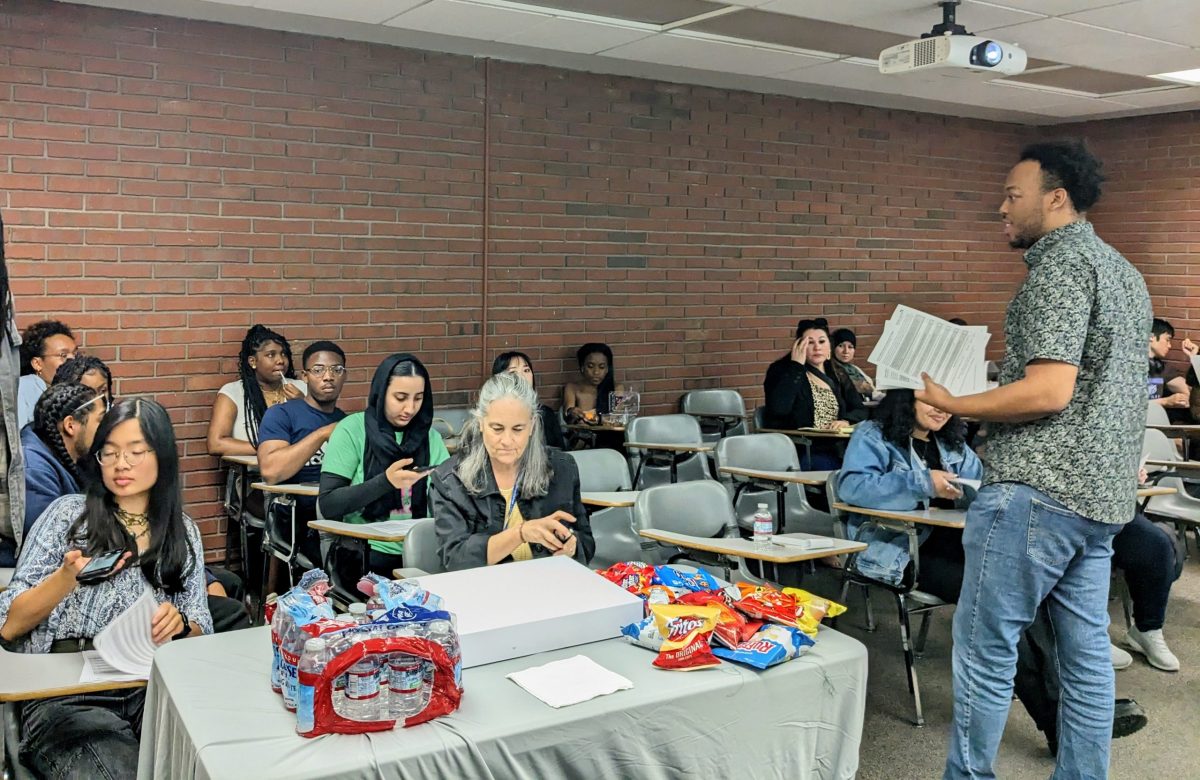Two therapist interns at Cosumnes River College hosted a mental health workshop focusing on intergenerational trauma on April 3.
Demond Washington and Kofi Adjepong, both in their third year of a doctoral program at California Northstate University, hosted a workshop called “Breaking Barriers: Understanding the Basics of Mental Health.”
“Having the information exposure at a much younger age is really important to people,” Washington said. “It helps you kind of, take ownership of the things that are going on.”
The workshop focused on possible causes of trauma, such as domestic violence, racism, divorce, child abuse, discrimination, natural disasters, genocides and parental incarceration.
Students were asked to think of other causes of trauma and were handed a “Childhood Experience Questionnaire for Adults” created by Kaiser Permanente to determine possible causes of trauma.
“Most of our trauma, formulation of disorders and things of that nature tend to start in childhood and then just like the cycle of trauma, passes down from generation to generation until it’s ultimately broken or dealt with,” Washington said.
Tiffaniece Johnson, a 22-year-old psychology major, said she liked seeing hosts who looked like her.
“One of the speakers, Kofi, really centers a lot of the things that black children, or children in like, urban neighborhoods deal with,” Johnson said.
Adjepong said he and Washington are of the 0.9% of Black men working in the mental health field.
“There is this disconnect between mental health and representing society at large and I think that is important to highlight,” Adjepong said.
The workshop’s discussion transitioned from causes of trauma to reactions and symptoms such as shame, guilt, dissociation, vulnerability, attachment issues, substance abuse and self-isolation.
Adjepong said he grew up in a poor environment and used sports as his escape until he discovered psychology in college.
“Realizing that kind of people like me don’t know about it, that was my drive,” Adjepong said. “You need to know about this. I always think about my younger self. I want to be who I wish I had growing up.”
Attending workshops about mental health and learning about intergenerational trauma is important because emotions can be difficult to control, Johnson said.
This workshop was the second in a mental health series by Washington and Adjepong. The third workshop will be held sometime in May.
“Being able to name it, what we say a lot in therapy, gives you a lot of power to accept what was going on,” Adjepong said.

